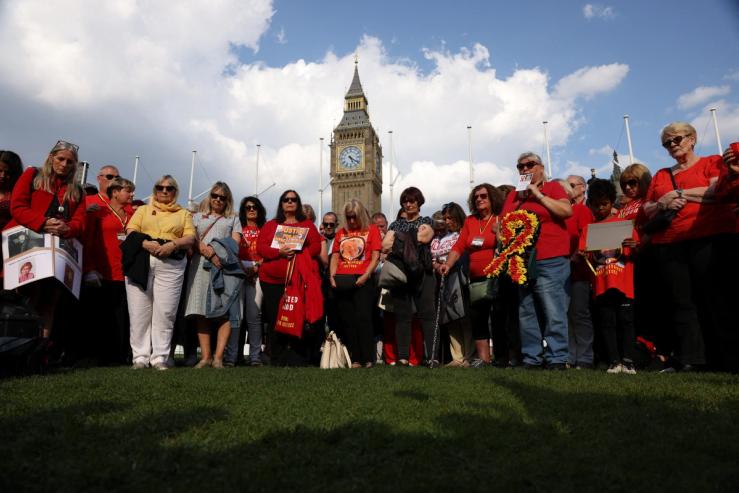The News
Britain’s National Health Service knowingly exposed tens of thousands of patients to deadly infections through contaminated blood in the 1970s and 80s and then covered up the scandal, a long-awaited public inquiry found.
More than 30,000 people received infected blood and blood products from the state-funded NHS, often originating from high-risk populations at the height of the AIDS epidemic, according to the six-year inquiry. An estimated 3,000 people in the United Kingdom are believed to have died after receiving tainted blood, and thousands more contracted HIV and Hepatitis C.
Successive governments and medical professionals failed repeatedly to protect patients and then destroyed evidence to conceal their misconduct, with the inquiry chairman, former judge Brian Langstaff, describing the coverup as “subtle, pervasive and chilling.”
“This disaster was not an accident,” Langstaff said. “The infections happened because those in authority — doctors, the blood services and successive governments — did not put patient safety first.”
SIGNALS
Scandal rocked British public’s trust in medicine
Many of the patients affected received contaminated blood during treatment for hemophilia, and Clive Smith, chair of The Haemophilia Society in the UK, said the scandal rocked the public’s faith in the medical establishment. “[It] really challenges the trust that we put in people to look after us, to do their best and to protect us,” he said. Langstaff, the inquiry chairman, agreed: “People put their trust in doctors and the government to keep them safe, and that trust was betrayed.”
That breach of trust affected the investigation, too: Even when the inquiry began in 2017, survivors and their families said they didn’t have faith that the Department of Health would fairly investigate a catastrophe it helped create.
For some, justice came too late
“So many heads should roll, but many of the most culpable individuals are dead,” Guardian columnist Sarah Boseley wrote. That’s because the investigation took so long — an official inquiry wasn’t launched for decades, and then took years to complete. Smith said the delay is “justice denied,” adding that even those involved who are still alive will be difficult to track down. “Truth, justice and accountability should not have been delayed for so long,” the Guardian’s editorial board wrote. “The length of time it has taken for those whose lives were devastated by infected blood to gain some measure of justice puts this scandal in a league of its own.”
Recommending criminal charges was not within the purview of the inquiry, and lawyers have said the chances of corporate manslaughter charges are “extremely remote.”
A new challenge for Britain’s PM: Finding the money
Politicians from across the political spectrum came together Monday to cheer the report for uncovering the decades-long scandal, but that harmony will likely be brief. Now, iNews columnist Katy Balls wrote, comes the big and unpleasant question of how the UK is going to foot the bill.
Prime Minister Rishi Sunak vowed to “right this historic wrong,” and a compensation package for victims, expected to total £10 billion ($12.7 billion), is set to be announced Tuesday. “The concern was that finding the money could – in the words of one Tory politician – ‘make or break’ another national insurance cut,” Balls wrote.



